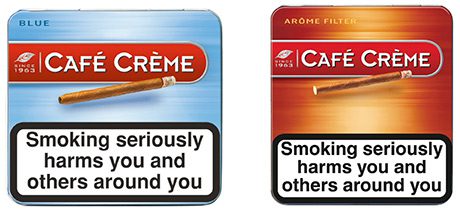
CIGARS don’t form one of the biggest sections of the tobacco market but from a retailer’s point of view they have some distinctly positive qualities. Cigar smokers are said to be pretty loyal shoppers, so if one visits you once or twice there’s a good chance he will become a regular customer. And, in general, cigars offer better retail margins than cigarettes.
If anything, cigars have done fairly well in recent months, helped by decent summer weather in many parts of Britain this year.
And the teams behind many of the brands have noted that as the tobacco market becomes considerably more complicated – with some adult smokers becoming regular users of two or more types of tobacco product, for example RYO during the week and cigarettes or cigars at the weekend – there is arguably more opportunity for cigars to do well. And cigars won’t, as things currently stand, be hit by some of the minimum pack-size rules that will affect cigarettes and RYO under the European Tobacco Products Directive in the next couple of years.
However cigars, like all other tobacco lines, will be affected by the tobacco display ban that comes into play in small tobacco outlets in Scotland in April next year.
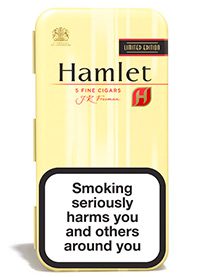
Scandinavian Tobacco Group UK, the firm behind the country’s biggest selling cigar brand by volume, Café Crème Blue, argues that the biggest brands in tobacco categories, the cheapest and some specialist products are likely to dominate after the display ban comes into play.
“Well-known, big-selling brands should always be a key focus for all Scottish retailers as consumers look for reassurance from big brands they can trust,” said James Higgs, head of marketing and public affairs at Scandinavian Tobacco Group UK. “Value for money still plays a big role in influencing shopper decisions and without sight of the prices, it’s likely customers will simply ask for the cheapest product available. As a result, stocking products that offer exceptional value for money, such as Break Little Cigars or Moments Miniatures, will allow Scottish retailers to respond to this growing demand.”
“Stocking niche ranges like Café Crème Filter Arôme will also enable Scottish retailers to give their store a point of difference,” he said. STG UK’s dark market tips include:
• Plan your range. Think about what your range will include now so you can get one step ahead and start training your staff to avoid lengthy queues at the till when the ban arrives.
• Follow the trends. When planning your range, ensure you have a selection of products that respond to key trends such as brands they can trust with Café Crème Blue, value for money ranges like Moments or Break Little Cigars, and niche products like Café Crème Filter Arôme.
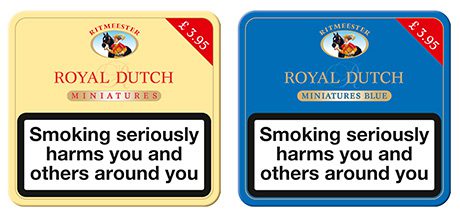
• Liven up your range. You have few chances left to refresh your display with product launches, so consider allocating space to trial new products and monitor their results before you decide if they’ll make it into your final range.
• Stay stocked up. If you don’t have it in stock your customers can’t buy it. Being out of stock can also be detrimental to future sales if customers spend time waiting at the till only to find you don’t have what they’re looking for, so monitor stock levels regularly to avoid that happening.
n The theory that the cheapest option will be one of the most important products in a dark market is one that is borne out by the real experience of the display ban in supermarkets and other large outlets, says specialist cigar firm Ritmeester.
The company has been looking to build distribution in the convenience channel to add to its established position in supermarkets. While it is still possible to display the product in small stores it has been aggressively marketing its main brand Royal Dutch Miniature cigars in price-marked packs that started at £3.65 for 10 before moving to £3.95. That gives it, said field development manager Andy Swain, a typical price difference of £1 or more per pack against the brand leader. And at that level of difference, the company says, consumers are willing to give the cigars a go.
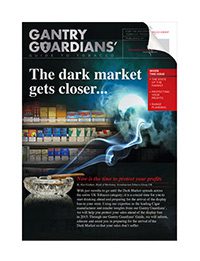
Swain said: “If the difference is 10, 20 or 30p the consumer, particularly in the cigar category, will stick with what they know. But because the difference is so big they’re willing to try the cheaper product and then the quality means we see repeat purchase.
“The message we have is that it’s the same as any other category, you should stock the brand leader and a value option.”
In the supermarkets, which are already dark, the company aims to be the cheapest option. Consumers often ask which is cheapest, he said. So the firm works hard to be cheapest miniature cigar available and will employ the same strategy when small stores go dark.
n Tobacco giant JTI reckons it has the single most valuable cigar brand in Scotland with Hamlet, which by its own company estimates it views as having almost 35% of the cigar market in independent and convenience stores north of the border.
Trends are certainly towards miniature cigars, said JTI head of communications Jeremy Blackburn, but other types of cigar are also important and from the company’s own questions to tobacco retailers it seems that cigar consumers vary a bit more than might have been expected.
“Whilst miniatures are becoming increasingly important, the large whiff sector continues to contribute a significant proportion of total cigar sales accounting for 36% market share. Within large whiffs, Hamlet Fine accounts for 52.5% of sales, more than twice its nearest competitor,” Blackburn said.
“Research from JTI has found that the UK cigar market is less reliant on the traditional stereotype of older gentlemen cigar smokers. Almost half, 49%, of the retailers surveyed cited 30-50 years as the typical age profile for cigar customers in their store.
“There are also an estimated 300,000 adult cigar smokers in the UK – 41% of whom are ‘dualists’, smoking cigars alongside ready-made cigarettes and/or roll-your own.
“Stocking up on cigars is particularly important towards the end of the week,” he said.
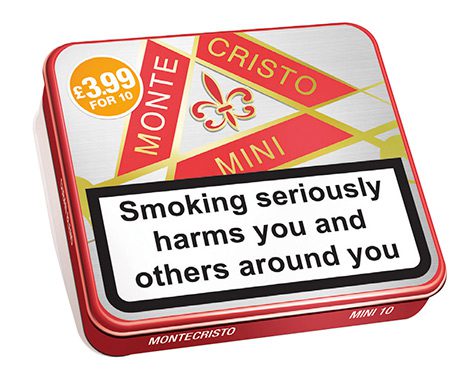
At Imperial Tobacco the company’s regional business manager for Scotland, Darren Attwell was also keen to say miniatures were doing well but aren’t the only cigar show in town.
Quoting British Market Research Bureau/TGI data he said: “38% of cigar consumers will choose different cigars for different occasions, so it is important that retailers offer as wide a selection as possible.
“It is vital that retailers offer a good selection of best-selling cigars from each category, such as Panama, Classic and Montecristo Minis. Good availability will help to ensure cigar smokers purchase in your store and not elsewhere.”






















